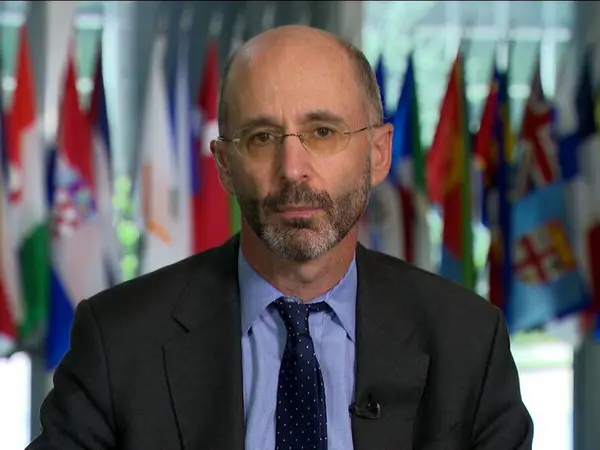Iran International has learned that US special envoy for Iran Robert Malley is under investigation and his deputy has assumed his duties at the State Department.
After multiple inquiries, State Department Spokesperson Matt Miller said Thursday afternoon in a statement that "Rob Malley is on leave and Abram Paley is serving as acting Special Envoy for Iran and leading the Department’s work in this area."
Multiple sources told us that Malley is under investigation for yet unknown reasons and one source said that the Federal Bureau of Investigation (FBI) is also involved.
According to our sources, Malley has been absent for a considerable period prompting speculation about potential conduct-related issues, which could affect his security clearance.
Speaking to Iran International on the condition of anonymity, a source familiar with the case confirmed Mr. Malley's absence, saying, "He has completely vanished. No calls, no meetings."
Considering Mr. Malley's essential role in formulating US policy towards Iran, his abrupt and prolonged absence raised considerable questions. Iran International sought clarification earlier on Friday from the State Department regarding the nature of his leave and security clearance status.
In response, the State Department replied by email, "The Department of State, the Special Envoy for Iran, and his team remain deeply engaged on the formulation and implementation of US Iran Policy."
The Department's spokesperson reiterated the same during his daily briefing on Friday before spokesperson Miller confirmed that Malley is on leave.
The initial email did not clarify who is holding the position of ‘Special Envoy for Iran’. In further correspondence, we asked: "Can you please confirm whether Abram Paley is currently Acting Interim Special Envoy for Iran?" The state department's answer was short: "Hello, we decline to comment."
Journalist Barak Ravid tweeted after Iran International's exclusive report first appeared that Malley told him: "I have been informed that my security clearance is under review. I have not been provided any further information, but I expect the investigation to be resolved favorably and soon. In the meantime, I am on leave."
Another informed source confirmed to Iran International that Rob Malley did not participate in the early May negotiations with Iranians in Oman. Instead, the White House Middle East coordinator, Brett McGurk led the US delegation.
Axios had previously reported that McGurk journeyed to Muscat on May 8, following a visit to Saudi Arabia with National Security Advisor Jake Sullivan.
Malley's absence from the Oman negotiations implies that the White House and the US National Security Council have assumed control of the discussions with Iran, effectively sidelining the special envoy.
President Biden appointed Mr. Malley primarily to revive the JCPOA, abandoned by former President Donald Trump in 2018. During 2021 and 2022, Malley worked on convincing Iranian leaders to comply with the JCPOA's stipulated limitations on their nuclear program. However, the Iranian nuclear negotiators never agreed to meet with him or with any other US official.
During his tenure, the Biden administration practically stopped enforcing US oil sanctions intended to persuade Tehran to scale back its uranium enrichment program.
Iran was barely exporting 250,000 barrels of oil per day during 2019 and first half of 2020, but shipments began to increase in the latter part of that year as Joe Biden signaled his readiness to negotiate for the revival of the JCPOA. Industry sources report that Iran’s daily oil exports have now reached 1.5 million barrels.
According to Iran International sources, Malley had been deeply involved in trying to free dual national prisoners from Iran before his unexpected leave. The sources suggest that he intended to step down from his position following their release, hoping to end his tenure on a high note.
Earlier this year, Iran International released an exclusive report disclosing Mr. Malley's dealings with Iran's UN ambassador, Amir Saeed Iravani, a former senior official in Iran’s Supreme National Security Council.
These discussions are thought to be the first direct contact between the US and Iranian officials since Washington’s withdrawal from the JCPOA in 2018. In response to our January inquiries about these meetings, the State Department stated, "We have the means to deliver specific and firm messages to Iran when it is in America's interest to do so." The Financial Times confirmed our initial report in June.
UPDATED AT 20:15 GMT, June 29
